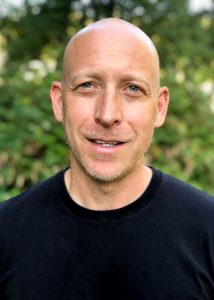Congratulations Dr. Darren Warburton and team on CIHR grant
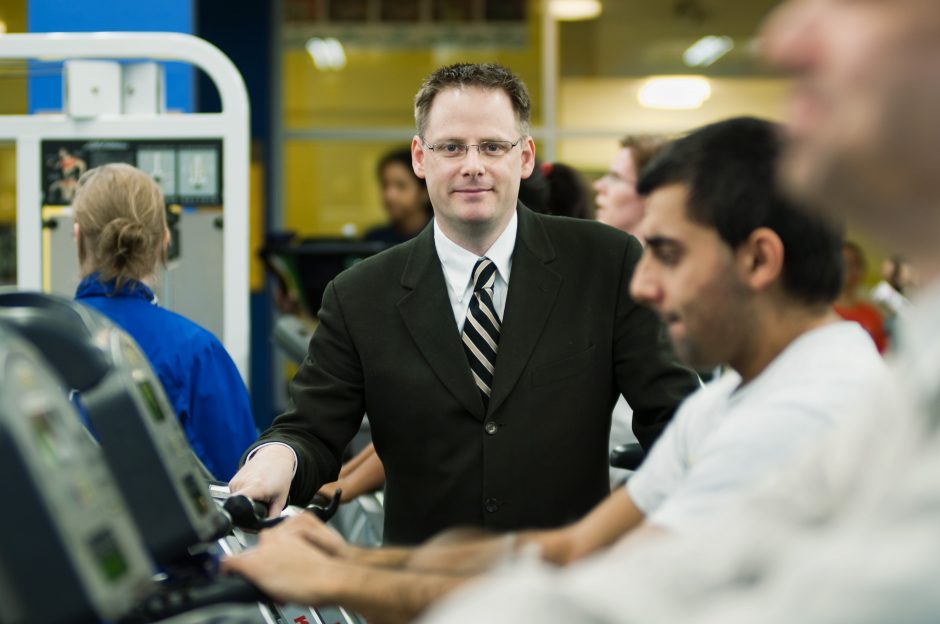
Congratulations to KIN faculty Dr. Darren Warburton and his team for being awarded a $75,000 CIHR Operating Grant: Network Environments for Indigenous Health Research. Dr. Warburton’s team includes Dr. Jan Hare and Co-Investigators Dr. Shannon Bredin (KIN), Dr. Tanis Mihalynuk, Dr. Rosalin Miles (KIN), Dr. Moss Norman (KIN), Dr. Paul Oh, and Dr. Ryan Rhodes. The funds will enable expanded collaboration with First Nation communities throughout UBC by supporting the project entitled “Lytton First Nation: Enhancing health and wellness through a community-based, health research network.”
Dr. Eli Puterman on stress, aging, and physical activity
Career Highlights
- Canada Research Chair in Physical Activity and Health
- Michael Smith Foundation for Health and Research Scholar
- 2018 Recipient of the Curt P. Richter Award
- K99/R00 Pathway to Independence Award from NHLBI
- 2015 Academy of Behavioral Medicine Research Neil Miller New Investigator Award
- Secured over $2.6M of research funding as PI or co-PI
Speaking with Dr. Eli Puterman, School of Kinesiology researcher and professor of KIN 489 – Psychobiology of Physical Activity, it’s clear he has a real passion for his work. For some time now, he’s been seeking to understand how stress, aging, and exercise work together. “As I moved through my education, and learning that long-term psychological stress has a negative effect on our health, I became interested in the accumulated experiences of stress across the lifespan and how they may ‘get under the skin’, so to speak, to advance aging,” he says.
His research hasn’t focused exclusively on one period or phase in our lifetime, but spans the entire spectrum of our health span. “From a wide lens perspective, the idea of chronic stress comes in many forms. It comes from early life experiences, including neglect, bullying, abuse, family issues, etc. Then when you emerge as an adult, we also have experiences in adulthood that are traumatic – the loss of parents or spouses, financial stress, discrimination, lack of control, and so on. But what I’m interested in is the whole spectrum of these stress experiences and how it affects the aging process, because they’re all really deeply connected. These experiences accumulate across the lifespan and they build up. Our work published in 2016 in the Proceedings of the National Academy of Science showed that the accumulation of stress in early childhood and through adulthood can impact the length of our telomeres later in life.”
It’s not all about stress for him, though, but how exercise and lifestyle behaviours can impact our level of stress and change the length of our healthspan and lifespan. Eli also began looking closely at types of behaviours that reduce the negative effects of stress that lead to illness and disease. He wanted to know: What if you’re fit and a regular exerciser, does it dampen this negative impact of stress? Or, equally, what if you take someone who is really stressed out and who doesn’t move enough, can you teach them some ways of exercising to shift and change the outcome?
Eli just completed a momentous study on caregivers of individuals with Alzheimer’s disease or a dementia-related disorder to determine whether exercise could alleviate some of the stress they were experiencing and lengthen their telomeres (the DNA-protein caps at the ends of each of our strands of DNA. Shortened telomeres are one indication of aging cells and early disease). Eli and his team conducted a randomized controlled trial to determine whether six months of exercise could reverse this cellular aging in previously inactive, highly stressed adults. The results suggest significant improvements in perceived stress levels, traditional health markers, like BMI and cardiorespiratory fitness, and lengthened telomeres, are published online in Psychoneuroendocrinology, to appear in print in December 2018, and they earned him the 2018 Curt P. Richter Award.
When asked where his interest in all of this came from, he laughs. “I have an undergraduate degree in both psychology and physiology, and after my psychology degree, I believed that I would become a clinician who dabbled in research. Then in my Masters and PhD, my passion for research grew, and I realized I loved research one thousand times more than clinical work,” he says with a laugh. He started taking courses with health psychologists who were looking at the biological factors of stress, when the questions he really wanted to answer started forming. “I wanted to know how much stress mattered if everything else in your life was in order – diet, exercise, and lifestyle. I just became fascinated by it and ended up being in this field that integrates my two undergraduate degrees.”
All of this research unequivocally informs his life outside of his research, and he does his best to juggle his career and family responsibilities with an active lifestyle. “The benefits of exercise aren’t arguable. I’m a physically active person myself. Until I had my son three years ago, I was working out 6-7 days a week.”
Now that his son is three years old, Eli says he’s getting back into his previous exercise routine. “I’m finally not tired all the time and I’m able to exercise 4-5 times a week again.” Eli uses an app to complete High-intensity Interval Training (HIIT) workouts in his condo’s gym. “It’s a full-body work out and it’s different every time. Many people think there’s only one way to get fit and that’s through a gym and that’s not true,” he says. “We as humans generally haven’t figured out yet that we make these big massive plans to change who we are and we often struggle with following through with it. We tell ourselves we’re going to become exercisers five times a week, and then we go to a gym and we’re lifting weights that are way too heavy or attending an aerobic class that is too intense, and we think ‘the gym hurts.’ Or we are unable to immediately transform from a zero days a week exerciser to a five times a week one without considering how it fits into our schedules. Then, soon enough, we don’t go anymore. We set really unrealistic goals.”
Eli is dedicated to his weekly exercise routine not just for himself, but for his family. “When I started doing research in this world of exercise, and reading all the articles about it – even if I already kind of knew – that’s when I started taking my exercise and my movement much more seriously, and it became incorporated into my psyche that it was more about my health and what I owe to my family than for vanity purposes.”
Eli says that now, he exercises for his son. “I’m a 45-year old father of a three-year-old, and I want to be able to be there for my son when he’s 18 and wants to go on hikes. I want him to love moving. I see it already, he loves running, he loves being chased, he loves cycling on the Seawall, and I want to be a parent that moves with him.”
Dr. Michael Koehle on managing self doubt
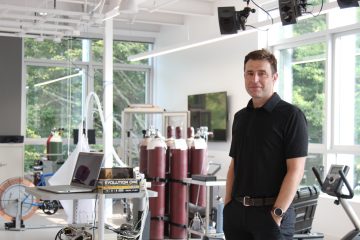
Managing self doubt
Regarding his research and academic career, Mike speaks at length about his biggest challenge: self doubt. “I spend a lot of time questioning myself, and feel often that I could be a better researcher, a better teacher. The doubt comes up when I face rejection, for example. And there’s a lot of rejection in academia. Grants may only have a 10% acceptance rate. You could always have more publications in better journals with more funding – always. I think you’ll find I’m not alone in this feeling either, a lot of faculty are really driven by self-doubt.” Mike says that he wished, at 18, he’d heard a message like this.
“The Impostor Syndrome never goes away. I’ve learned this speaking to friends who are far better researchers than me – they still struggle with it too. But I think learning how to face rejection is an important lesson – it’s that lean and hungry feeling that works for people and helps you strive toward improving every aspect of your job.”
As we talked about his career, Mike stressed the importance of sharing these challenges. “I think of undergrad students reading about faculty members’ careers and thinking everything is perfect and how could they ever achieve something like this, and in reality, it’s really a house of cards, and we’re all trying to keep all aspects of our jobs together. That self doubt is normal, and even healthy.”
A typical work week
When asked to describe a typical work week, Mike laughs. “It feels like it’s all emails these days.” Despite this sentiment, Mike expresses gratitude about the variety his day-to-day holds. “One day a week I’m in the Allan McGavin Sport and Exercise Medicine Centre working as a Physician, and this really feels like a little holiday, because here I really get to shut everything else down and focus on keeping people moving.” He dedicates another day each week to working with his grad students – he’s currently supervising one post-doctoral researcher, two PhD candidates, four Masters students, and clinical fellows that conduct some research as well. The rest of the week he carves out time to teach; conduct his own research; author papers, articles, and book chapters; and finally, he puts on his program and building director hat to look after all the administration work necessary to successfully run the sport and exercise medicine program and clinical facilities.
The most exciting thing for Mike about the new space he shares with his research and physician team at the Chan Gunn Pavilion is having everyone together. “It’s the first time in 10 years that I’ve been physically near my closest collaborators. Previously, I’d go months without seeing them,” he says. “What I really like is seeing the grad students and grad and clinical trainees interact – that’s priceless. They all have vast amounts of knowledge that compliment each other.”
Making moves outside of work
Outside of his professional portfolio, Mike makes exercise a priority in his calendar. ”I do a lot of physical activity,” he says. “All of my commuting is active commuting, whether it’s running or cycling. And then I augment that as well, every day.”
Mike says he’s usually training for something, whether it’s Ironman triathlons, or extensive cycling routes. Right now, he’s training to ride in the Haute Route bike race in the Alps this month, which covers 800km of distance and includes a 20,000m elevation gain. “I do all of these things for myself,” he says, trying to skip past the details of these achievements.
Aside from the obvious health benefits, this physical activity outside of his clinical practice and research gives him some necessary time to think. “All my work is about trying to remove barriers to physical activity,” he says. “To practice sports medicine, you need to know a thing or two about every single sport.”
If he really needs to get away, Mike pulls out his pilot’s license and takes his plane out around the Lower Mainland. “This plane, if you saw it, you wouldn’t want to fly in it – it’s so old,” he jokes. “But this is another chance for me to really escape and think. I’ve been flying for the last 10 years.” When asked if he had any advice for other young researchers or students who struggle to find this time to get away and think, Mike answers, “I think you need to schedule exercise in your calendar and defend it and don’t feel guilty about it. Because it’s critical.”
Career Highlights
- Lead Physician at Whistler Olympic Park for the 2010 Vancouver Olympic Games
- 2014-15 Killam Teaching Prize
- School of Kinesiology Professor: KIN 471 and KIN 562
- Selected by the Canadian Space Agency as one of 32 shortlisted individuals in the 2017 astronaut recruitment campaign
- Multiple medical and research missions with the Himalayan Rescue Association in Nepal
Dr. Michael Koehle, Professor with the School of Kinesiology and Physician at the Allan McGavin Sports and Exercise Medicine Centre, is not one to boast about his personal or professional achievements. In fact, when we sat down to talk research and exercise, and how each informs the other, Mike was almost sheepish when asked to elaborate on these successes. “I don’t want to highlight any of my accomplishments,” he jokes, as we begin to get down to business.
Teaching and research
Mike teaches KIN 471 – Prevention of Sports Injuries, and KIN 562 – Bioenergetics of Physical Activity here at the School, acts as the new Director of Sport and Exercise Medicine in the Chan Gunn Pavilion, and is actively engaged in his own research. “I’m looking at how the environment (meaning air pollution, high altitude, heat, or deep sea diving) affects the human body,” he says. “And mainly, I want to understand how these environmental factors affect us while we exercise – what the health consequences are, and ultimately how we can prevent them.
“I started down this career path because I like being outdoors. I’ve always been interested in how the human body functions, and I wanted a job where I could be working outdoors and looking deeper at human movement.” This interest has taken him all over the world, including Nepal to work with the Himalayan Rescue Association, Kenya to study respiratory limitations in Kenyan runners, as well as the Arctic as part of his rural and remote medicine training, for which he also trained in South Africa and Australia. “There’s a quote in science – and I didn’t make this up,” he laughs. “It goes, ‘if you can study a fish in Cleveland, you should study a different fish,’ so that’s part of the reason for the altitude stuff, but studying air pollution is pretty important to me, and it’s a big wide-open area,” he says. It’s also especially relevant now, considering the wildfires that rage through British Columbia during the summer months. Mike fields lots of questions about whether or not people should be exercising when air quality dips. “It’s a complicated question that needs to be answered, but what we’re finding is that sitting at home and not exercising doesn’t help,” Mike says.
Mike hopes his research will lead him to create some concrete guidelines for minimizing the health effects of air pollution and optimizing the benefits of physical activity, as we head toward more pollution problems in the future. “Pollution is bad, but exercise is good. This is a message I want to really get across.”
Dr. Patricia Vertinsky the recipient of the 2018 North American Society for Sport History Lifetime Achievement Award
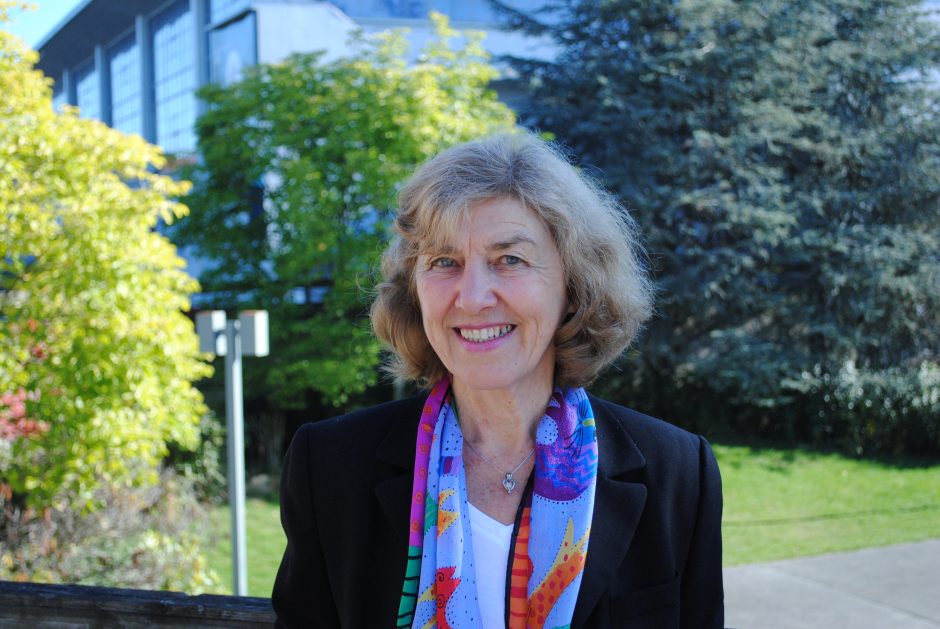
Dr. Patricia Vertinsky, School of Kinesiology faculty, is the recipient of the 2018 North American Society for Sport History (NASSH) Lifetime Achievement Award.
Since 1991, NASSH has presented the award to an individual or an organization in recognition of their significant service to the academic field of sport history.
Dr. Vertinsky is a historian of physical culture exploring the world of fitness, sport, physical activity, and physical education across the last two centuries and in a transnational context.
The NASSH Recognition Award, bestowed since 1991 recognizes an individual or an organization for their significant service to the academic field of sport history.
“Patricia has a long and storied career in sport history. Indeed, Patricia published one of the most influential books in our field. On Google Scholar, she has 2,658 citations; there are over 200 books, articles, chapters, abstracts, and book reviews on WorldCat. Patricia is being honoured not just for her publication record but for her graduate student supervision, service to our journal, for widespread contributions through scholarly editing, for conference work, and for helping others to be better scholars,” said Kevin Wamsley, NASSH Past President and Chair of the NASSH Awards Committee.
Congratulations to Dr. Vertinsky on this momentous achievement.
KIN study finds exercise reduces stress, improves cellular health in family caregivers
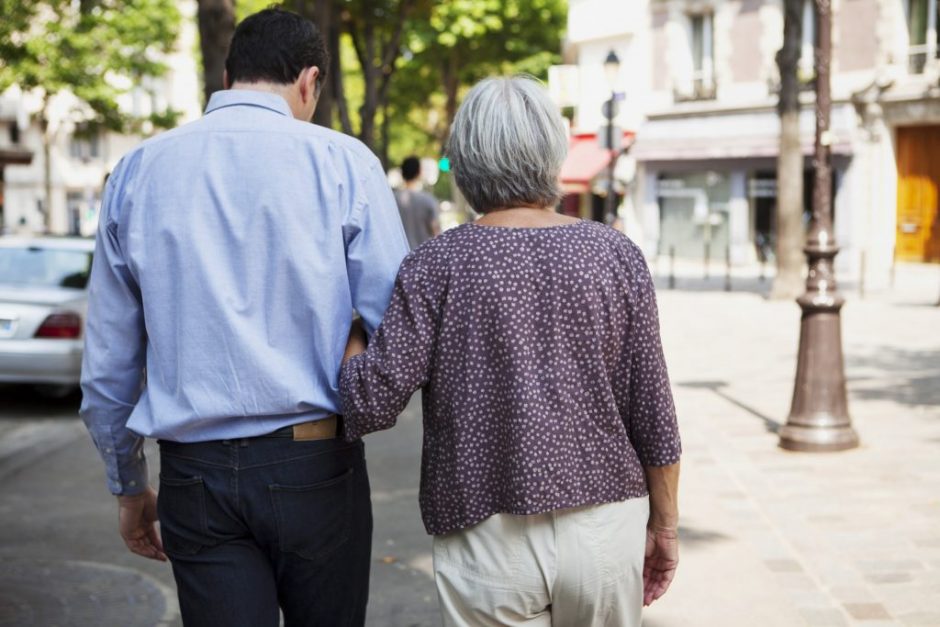
School of Kinesiology Professor, Eli Puterman’s study on family caregivers shines light on how exercise can reduce stress and improve cellular health.
The study found that exercising at least three times a week for six months reduced stress in a group of family caregivers and even appeared to lengthen a small section of their chromosomes that is believed to slow cellular aging.
Read the full article on UBC News.
Day of the Longboat 2018 Champions
Oct. 2, 2018 – This past weekend, the Pop-PA crew dominated the waters at Jericho Beach, coming first in the staff heats! Well done team, That’s a Paddling! #DidntTipOver #DayOfTheLongboat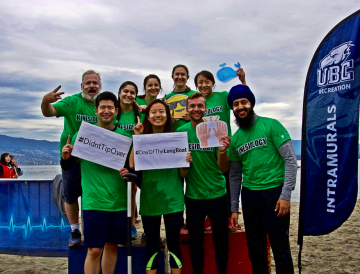
New Paper Out: COMPASS
Oct. 2, 2018 – New paper out on the protective effects of school connectedness on substance use and physical activity using data from the COMPASS UBC and COMPASS UW study. Read more here.
KIN alum named one of BIV’s Top 40 Under 40
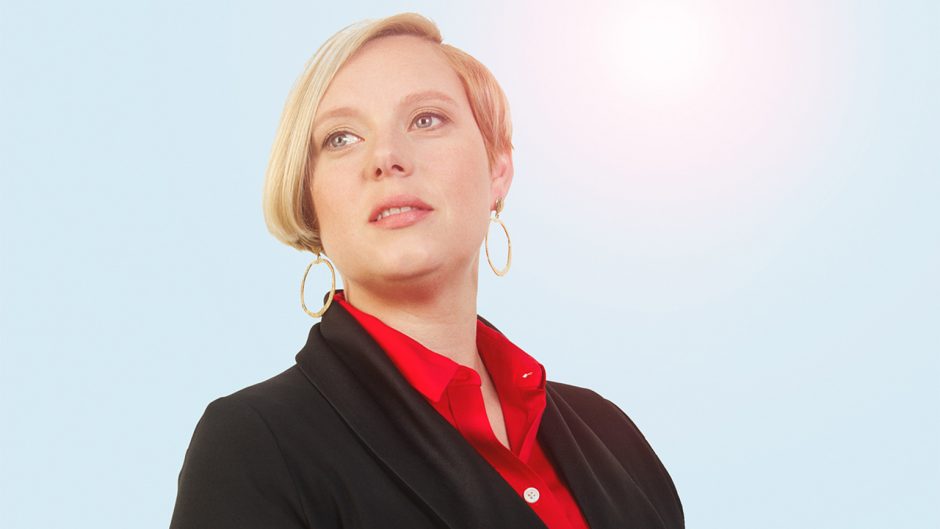
The UBC School of Kinesiology is proud to announce that Sara Hodson BHK 2002, founder and president of LIVE WELL Exercise Clinic, has been named as one of BIV’s top 40 under 40 list for 2018, as well as on of the Fastest Growing Companies in BC #23/100!
Business in Vancouver highlights the achievements of BC’s young entrepreneurs, executives and professionals by finding 40 outstanding professionals worthy of the Forty under 40 distinction.
Winners are under 40 and have demonstrated excellence in business, judgment, leadership and community contribution. The winners will be honoured at the 2018 Forty under 40 Awards gala dinner on Jan. 24, 2019 at 6:15pm at the Vancouver Convention Centre.
For tickets see: https://biv.com/forty-under-40
KIN book launch: Minds and Motion October 25, 2018

On October 25, 2018, the School of Kinesiology will toast to the launch of Minds and Motion: Celebrating the People and History of the UBC School of Kinesiology with an official launch at Jack Poole Hall in the Robert H. Lee Alumni Centre from 6:00-8:00pm.
This launch will include introductions from Dr. Robert Boushel, Director and Professor of the School, Don Wells, Midns and Motion writer, and Dr. Bob Sparks, Professor Emeritus.
We will also host an engaging panel discussion on the School’s new innovations and impacts.
Refreshments and hors d’oeuvres will be served. Copies of the book will also be available for purchase.
If you are interested in attending this momentous event, please RSVP before October 18.
If you’d like to order the book, visit the UBC bookstore’s website.
